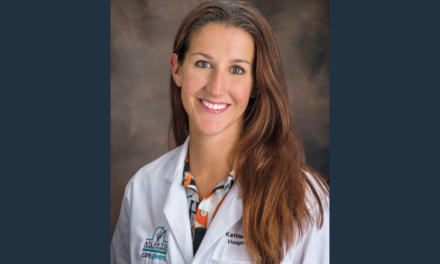What’s more important than where we are now with the COVID-19 pandemic is where we’re going. Timothy Schock ’13-’16M, data analyst at the Pennsylvania State Data Center located in the Institute of State and Regional Affairs at Penn State Harrisburg, has authored a new report predicting areas that may be hit hardest by the COVID-19 pandemic in the coming weeks.
Schock didn’t simply map the number of cases or hotspots of the Coronavirus—the demographic expert examined the medical risks, health services risks, and proximity risks of Pennsylvania counties to determine how vulnerable each is to challenges associated with COVID-19. “(The most vulnerable) counties have older populations, more seniors in nursing homes, and populations with underlying medical conditions… they also have limited health care services and the capacity to treat outbreaks… all of which result in negative COVID-19 outcomes.”
Schock represents the medical vulnerability of a county as a percentage, where a higher percentage indicates higher risk for unfortunate consequences. Results range from lowest risk at 19.4% (Dauphin) to highest risk at 53.3% (Sullivan). Cumberland County is reported as 27.9% and Franklin County is 36.8%. Schock cautioned that officials and residents in higher risk counties need to, “take preemptive actions to adhere strictly to the Centers for Disease Control and Prevention and the Pennsylvania Department of Health’s guidelines of physical distancing and other sanitary precautions.”
Despite the challenges ahead, Schock hopes that the pandemic may be an opportunity for “legislators across the Commonwealth [to] take a serious look at gaps in the state’s emergency preparedness and public health, especially for rural areas.”
He attributes his empathetic and service-oriented research style to his mentors at Shippensburg University. “I was extremely lucky to have several faculty whom I deeply respected both academically and personally, especially Drs. Paul Marr and George Pomeroy in the Department of Geography/Earth Science. They really helped to challenge and expand my knowledge and worldview.”
Now, Schock supervises and mentors Ship students and interns, mirroring that same compassion demonstrated as a student. “(My mentors at Ship) are the gold standard and moral compass that I judge myself against.”
To current Ship students who are facing a dramatic change and an abrupt transition to the workforce due to COVID-19, he reminds them to keep things in perspective. “Please know that you are not alone and that your feelings are valid… please believe that you are much more resilient than you know, and you will come out the other side a more confident and agile person.”





